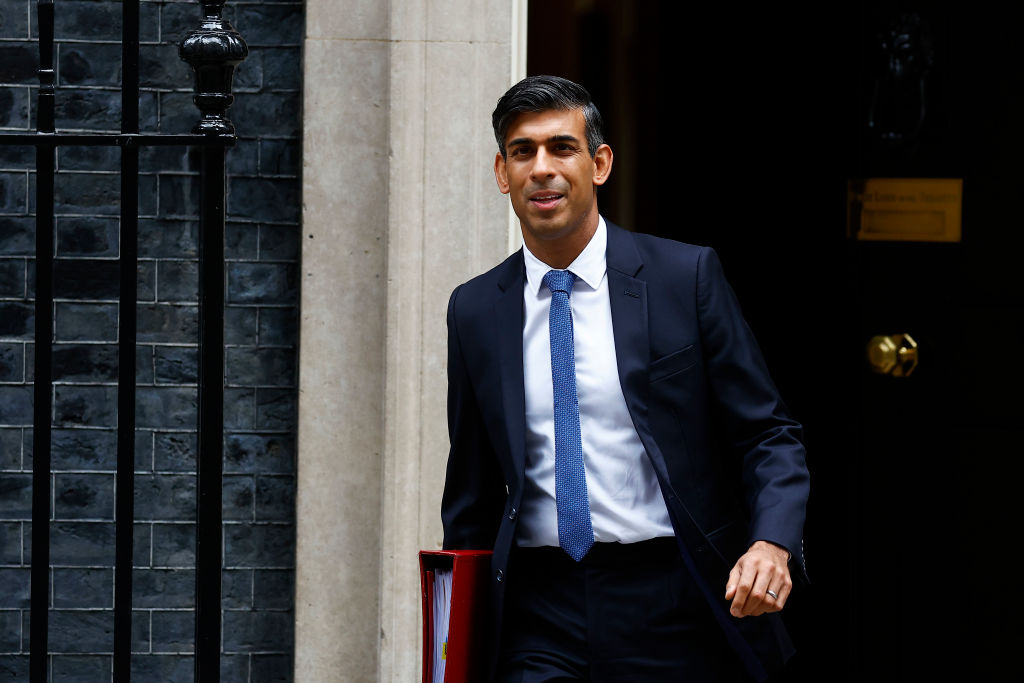State pension triple lock at risk as cost balloons
The cost of the state pension triple lock could be far higher than expected due to record wage growth. Will the government keep the policy in place in 2024?


Get the latest financial news, insights and expert analysis from our award-winning MoneyWeek team, to help you understand what really matters when it comes to your finances.
You are now subscribed
Your newsletter sign-up was successful
Want to add more newsletters?
The state pension could rise by 8.5% in 2024 thanks to the triple lock policy.
However, Prime Minister Rishi Sunak has refused to commit to keeping the triple lock in the next manifesto, despite it being Conservative party pledge as the cost spirals. Work and pensions secretary Mel Stride has also said the triple lock is not sustainable long term.
Even Labour Party leader Keir Starmer has refused to commit to the policy.
Try 6 free issues of MoneyWeek today
Get unparalleled financial insight, analysis and expert opinion you can profit from.

Sign up to Money Morning
Don't miss the latest investment and personal finances news, market analysis, plus money-saving tips with our free twice-daily newsletter
Don't miss the latest investment and personal finances news, market analysis, plus money-saving tips with our free twice-daily newsletter
Amid this confusion, there have been reports suggesting the government may use a lower figure to calculate the state pension’s increase in 2024.
The state pension increased by 10.1% in 2023, in line with inflation, a far above-average boost compared to previous years. The triple lock ensures the state pension goes up by average wage growth, inflation, or 2.5% – whichever is highest.
Inflation has fallen to 6.8%, meaning the state pension will likely go up in line with the 8.5% wage growth recorded in the three months to July.
But will the government really scrap the policy as its cost spirals?
Will the government keep the triple lock next year?
Inflation is expected to fall in the coming months, but average earnings growth is on an upward trend and could continue to grow as public sector pay deals are reflected in the figures.
In light of the rise in wages, there have been reports the government is considering using a different figure to calculate the increase to the state pension next year.
“Given the impact of one-off payments to NHS and Civil Service workers in swelling the figures, rumours are swirling that the government may opt to use a smaller number instead,” says Helen Morrissey, head of retirement analysis at Hargreaves Lansdown.
“For instance, stripping out the effect of bonuses could leave the increase at more like 7.8% rather than the current 8.5%.”
The cost of sticking with the triple lock would be “huge and unpredictable” says Steven Cameron, pensions director at Aegon, but by “twisting” the policy both parties “risk losing the support of swathes of older voters”.
The cost of the state pension is expected to outweigh combined spending on education, policing and defence over the next two years.
Rising cost of the state pension triple lock
According to the Institute for Financial Studies (IFS), increases to the state pension could cost the government up to £45bn per year by 2050.
The 8.5% rise in the full new state pension would take it to £11,500 per year – currently it stands at £10,600.
This increase would cost the government £2bn more than budgeted in 2024-2025, the IFS said.
Calculations from interactive investor II’s show the cost of the state pension triple lock could hit £10bn 2024 - based on the latest wage and inflation figures. This is £4bn higher than the DWP forecast in March.
“The DWP March forecast expected the total state pension cost to rise to £135 billion in the tax year beginning April 2024. But a bumper wage bill for employers has a knock-on impact on the state pension bill which could rise to a total cost of around £138 billion next year. The cost of the triple lock could hit over £10 billion next year, based on ii calculations. The final bill could be lower if inflation or wages fall during July,” says Alice Guy, head of pensions and savings at interactive investor.
The cost of the state pension triple lock is growing for the government as the population ages. “The current government and Labour party have both committed to the triple lock next year. But the cupboards are bare, with the tax burden at a record level. With an aging population, the triple lock promise is becoming increasingly expensive,” Guy adds.
Already the state pension age is predicted to rise to 68 by 2040.
Join us at the MoneyWeek Summit on 29.09.2023 at etc.venues St Paul's, London.
Tickets are on sale at www.moneyweeksummit.com
MoneyWeek subscribers receive a 25% discount.
Get the latest financial news, insights and expert analysis from our award-winning MoneyWeek team, to help you understand what really matters when it comes to your finances.
Nic studied for a BA in journalism at Cardiff University, and has an MA in magazine journalism from City University. She has previously worked for MoneyWeek.
-
 Do you face ‘double whammy’ inheritance tax blow? How to lessen the impact
Do you face ‘double whammy’ inheritance tax blow? How to lessen the impactFrozen tax thresholds and pensions falling within the scope of inheritance tax will drag thousands more estates into losing their residence nil-rate band, analysis suggests
-
 Has the market misjudged Relx?
Has the market misjudged Relx?Relx shares fell on fears that AI was about to eat its lunch, but the firm remains well placed to thrive
-
 Rishi Sunak: MoneyWeek Talks
Rishi Sunak: MoneyWeek TalksPodcast On the MoneyWeek Talks podcast, Rishi Sunak tells Kalpana Fitzpatrick that we need better numeracy skills to improve financial literacy and boost the economy.
-
 Is an inheritance tax (IHT) cut on the way?
Is an inheritance tax (IHT) cut on the way?Tax Talk that the government might cut or scrap inheritance tax in its Autumn Statement is rife. We look at how it could be reformed, and what difference it would make.
-
 Act now to bag NatWest-owned Ulster Bank's 5.2% easy access savings account
Act now to bag NatWest-owned Ulster Bank's 5.2% easy access savings accountUlster Bank is offering savers the chance to earn 5.2% on their cash savings, but you need to act fast as easy access rates are falling. We have all the details
-
 Moneybox raises market-leading cash ISA to 5%
Moneybox raises market-leading cash ISA to 5%Savings and investing app MoneyBox has boosted the rate on its cash ISA again, hiking it from 4.75% to 5% making it one of top rates. We have all the details.
-
 October NS&I Premium Bonds winners - check now to see what you won
October NS&I Premium Bonds winners - check now to see what you wonNS&I Premium Bonds holders can check now to see if they have won a prize this month. We explain how to check your premium bonds
-
 Government considering cuts to inheritance tax, reports say
Government considering cuts to inheritance tax, reports sayThe Sunday Times reported government officials are considering cuts to inheritance tax ahead of the general election.
-
 The best packaged bank accounts
The best packaged bank accountsAdvice Packaged bank accounts can offer great value with useful additional perks – but get it wrong and you could be out of pocket
-
 Bank of Baroda closes doors to UK retail banking
Bank of Baroda closes doors to UK retail bankingAfter almost 70 years of operating in the UK, one of India’s largest bank is shutting up shop in the UK retail banking market. We explain everything you need to know if you have savings or a current account with Bank of Baroda
